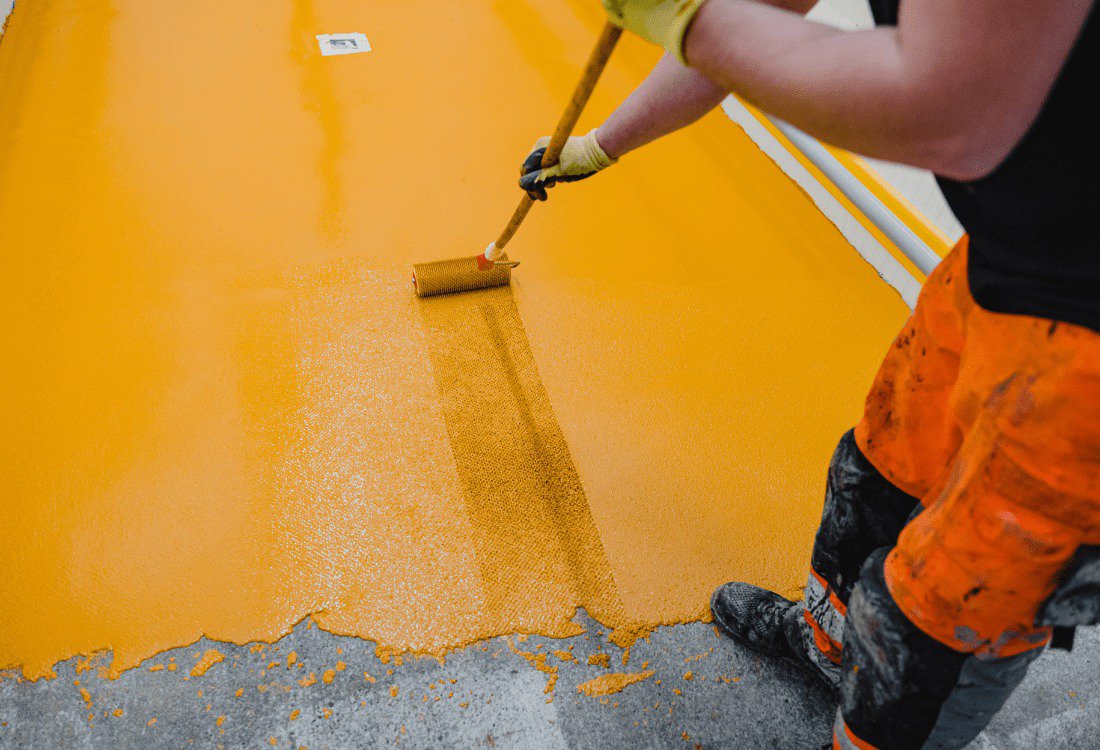Polyurethane is an increasingly common discussion point in architectural and legislative boards. A potential alternative to the gold-standard epoxy resin, polyurethane is a strong market contender. Today, we present polyurethane screed, discuss the benefits of polyurethane, and direct you towards useful resources.
What is Polyurethane?
Polyurethane is a synthetic resin. It is made of many different chemicals and compounds. The combination of different polymer units creates a variety of polyurethanes. At one end of the spectrum, polyurethane can be an environmentally friendly insulating foam. At the other end, it can be condensed into an ultra-hygienic durable coating for applications such as floors. It is this dynamic flexibility that causes so many quality surveyors to ask what polyurethane flooring is, and whether their site can be added to the growing list of premises that have adopted polyurethane solutions.
What Is Polyurethane Used For?
Due to its flexibility, tough mechanical properties, and excellent resistance to fatigue, polyurethane is used for a wide range of applications. It can be applied as coatings, foams, or varnishes, either on its own or in mixtures. It is often used for flooring, and this is for several reasons. Firstly, it is very durable and can resist heavy foot traffic. Secondly, its unique elastic properties make it highly resistant to impacts and abrasions. As such, it requires very little maintenance, and its lifespan can be easily extended with resealing. This resistance to abrasions is where polyurethane differs from epoxy resin, which can be brittle depending on its finish.
Is Polyurethane Flooring Hygienic and Safe?
One of the biggest plus points for polyurethane flooring is its excellent hygiene ratings. The surface is both seamless and non-porous, preventing bacteria from entering the material. A polyurethane floor is also very easy to clean, even to medical standards, which is why it is often found in hospitals. In terms of its additional health and safety benefits, polyurethane is inherently slip-resistant. As such, it does not usually require additional or specialised coatings to make it safe for use.
Is Polyurethane Flooring Eco-Friendly?
Polyurethane is made of organic materials. Although it has some similarities to plastic, it is actually an elastomer, which gives it similar ecological credentials to rubber. Polyurethane will biodegrade naturally, although the timescale for this depends upon its chemical structure. If it has been manufactured with toughness and durability in mind, it will take longer to biodegrade. More commonly, polyurethane is chemically dissolved and repurposed into a vast array of other products. These include carpet padding, soundproofing boards, shoes, tables, and even new polyurethane floors! This green stamp of sustainability is the cherry on the top for polyurethane.
Find Out More
When trying to decide whether a floor should be tried-and-tested epoxy resin or its more flexible cousin polyurethane, it can help to talk to someone who is an expert in both. To find out more about polyurethane screed for your premises, please request a quote today.



